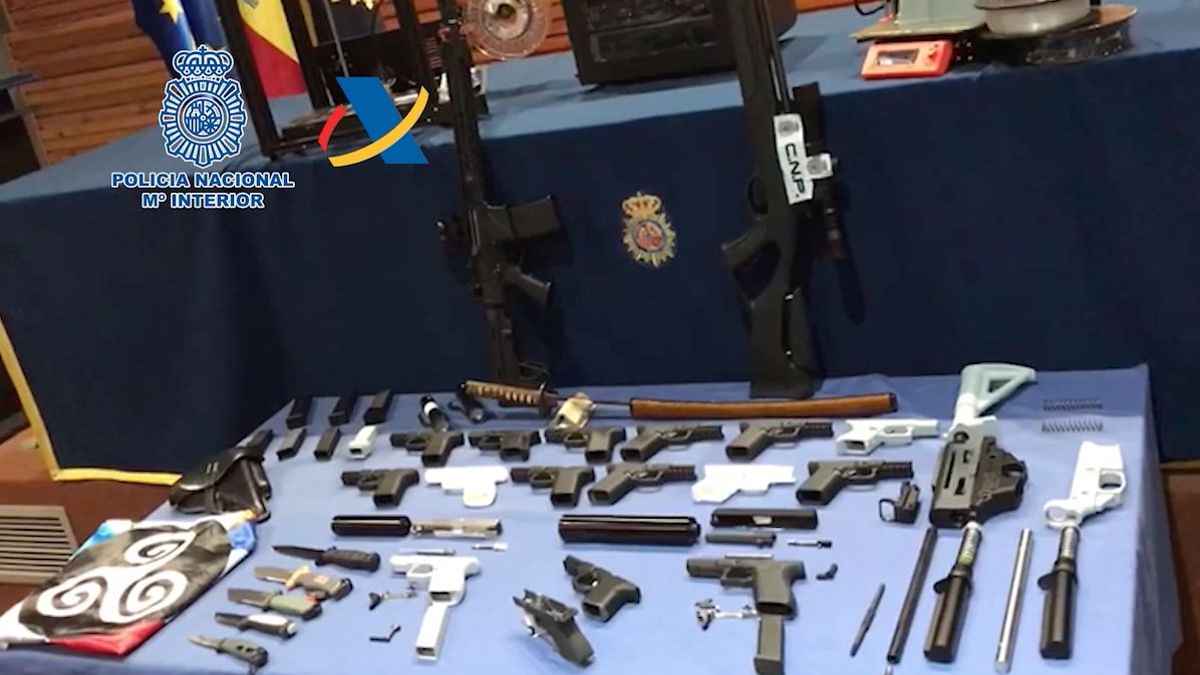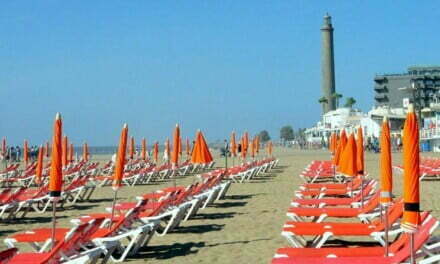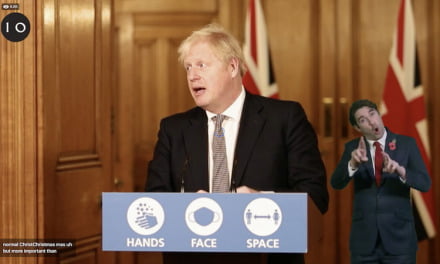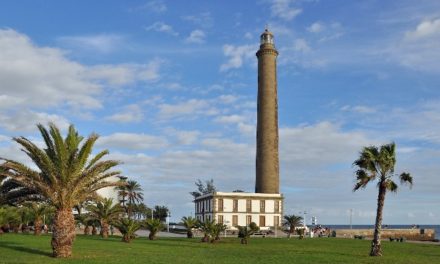The greatest, most serious threat to security on The Canary Islands today, in Spain and in Europe, does not come from outside. It comes from within. Spanish Police have finally removed the secrecy order from an ongoing covert investigation, that resulted in a significant and shocking find, on our neighbouring island of Tenerife. A fully functioning arms factory; creating dangerous unlicensed weaponry, discovered last September, in a workshop run by a man who bought materials over the internet and was in possession of various bomb-making, and weapons manufacturing manuals, as well as guides to terrorist and military tactics, and, notably, various forms of symbolism and iconography adopted by fascists and white supremacists. The question, now, is; was he acting alone?
The most dangerous people in Spain, today, are those same ones who create fear and lies about “external threats”, while promoting security through division and hatred, and enable the plotting of mayhem and potential for bloodshed on our own streets. If we do not calmly assess the situations we face, by working together; if we become too easily distracted by those who promote fear, and allow our security forces, and tactical response teams, to be erroneously deployed, where they are not really needed, we are all at risk of letting the real enemies of our society take control of our social discourse. We cannot let protectionists shape our narrative. Yes the world can be a dangerous place, but in the main our system works well. We endanger ourselves if we spread panic, or cry wolf, instead of calmly promoting cooperation and unity, working together to identify real and present dangers.
– Timon.:.
 Policia Nacional agents and officials from the Spanish Tax Agency have taken down an operation from Tenerife, responsible for the first-known 3D-printed weapons workshop in Spain. The man running the workshop was arrested for the alleged illegal possession of weapons and explosives.
Policia Nacional agents and officials from the Spanish Tax Agency have taken down an operation from Tenerife, responsible for the first-known 3D-printed weapons workshop in Spain. The man running the workshop was arrested for the alleged illegal possession of weapons and explosives.The clandestine workshop, where the detainee is accused of assembling firearms manufactured using a 3D printer, was discovered after a combined investigation by Spain’s General Information Commissary, Tenerife’s Provincial Information Brigade and the Tax Agency’s Customs Surveillance unit.
Two 3D printers, eleven spools of 3D printer filament and numerous computer devices used for the manufacturing of weapons were seized.
In addition, 19 3D printed handgun frames, nine magazines, two silencers, two unnumbered handgun slides, two barrel rifling parts, two firing pins, an Airsoft AR-15 assault rifle replica, were seized, as well as a carbine with a telescopic sight, several metal tubes to make barrels, a holographic viewer, a plastic mould to make frames and various pieces used to make small arms (rods, sights, crosshairs, triggers, springs, hammers, among others).
 Agents also located two tasers, five knives, a machete, a katana and various objects with “supremacist” symbols including two flags representing a trisquel (an ancient celtic symbol with three curved or jointed segments emanating from a single point that has been adopted by white supremacists ) and a pistol holster with the emblem of the German National Socialist Army on it.
Agents also located two tasers, five knives, a machete, a katana and various objects with “supremacist” symbols including two flags representing a trisquel (an ancient celtic symbol with three curved or jointed segments emanating from a single point that has been adopted by white supremacists ) and a pistol holster with the emblem of the German National Socialist Army on it.
Of special importance to the investigation, was the detection of more than 30 manuals on terrorism, urban guerrilla, military strategy, a homemade explosives manual, one on the use and handling of firearms and the manufacture of firearms through 3D printing.
Various chemical substances were also found that could be used in the production of explosive devices, including “black powder”, aluminium, nitrate and acetone were used, which meant the tactical firearms and explosives specialists of the TEDAX-CBRN team were required neutralise the active threats, and a canine unit specialised in the detection of these types of substances.
The operation, was carried out on September 14, and directed by the Court of Instruction number 3 in Santa Cruz de Tenerife, which has kept the case secret until now.
 Spain’s first known 3D printed illegal weapons workshop
Spain’s first known 3D printed illegal weapons workshop
The investigation began when specialist agents detected the existence of a person illegally making purchases of essential parts for firearms and explosive substances, over the internet.
After analysing all the information obtained, a corresponding operational deployment was established, carrying out four searches on Tenerife.
When agents entered one of the premises they immediately saw one of the 3D printers in full operation. A handgun frame was being printed and was almost finished.
The detainee had a large number of the fundamental parts and pieces needed to complete the assembly with the frame manufactured on the 3D printer. The arrested detainee had everything he needed to fully manufacture small firearms.
 3D printing of weapons in the EU is a serious concern
3D printing of weapons in the EU is a serious concernAdditive manufacturing has become a major and worrying factor in the proliferation of firearms, facilitating access to them by criminal or terrorist groups.
A terror attack carried out in Germany, against a Jewish synagogue in October 2019, employed, among other weapons and explosives, a rifle made with a 3D printer.
Spain’s General Information Commission stands at the forefront of monitoring these new capabilities, employed by sophisticated criminal groups, and leads a working group of European police forces, as part of the EMPACT FIREARMS platform, dedicated to combating emerging threats in this area and, specifically, responding to threats posed by 3-d printed firearms manufacture.
Spanish National Police, in Madrid, are planning an International Congress dedicated to 21st Century Firearms and Emerging Threats.
The Spanish Tax Agency’s Customs and Special Taxes Department, through their Customs Surveillance unit, co-directs the operational and tactical action in the fight against illicit arms trafficking, as part of the Empact Firearms scope of operations.
The Ministry of the Interior in Spain promotes EU Action on illicit arms trafficking through the European Council’s Customs Cooperation Group, which is currently being led by the Spanish Department of Customs and Special Taxes during the period 2020-2021.













